Stay in the know
All our latest podcasts delivered right to your inbox.
Choosing a school is a huge decision for families with kids who learn and think differently. One concern is whether special education is better in high-income schools. Another is how IEPs serve kids in racially diverse or low-income schools.
Hosts Julian Saavedra and Marissa Wallace take on tough questions from Understood users about how IEPs differ between schools based on income. They discuss how race, diversity, and wealth play a role in the special education services that kids get.
Related resources
Learn about school options like neighborhood and charter schools.
Avoid 5 common mistakes that families make when choosing a school.
We want your feedback! Email your thoughts about the show to opportunitygap@understood.org.
Episode transcript
Julian: Welcome to "The Opportunity Gap," a podcast for families of kids of color who learn and think differently. We explore issues of privilege, race, and identity. And our goal is to help you advocate for your child. I'm Julian Saavedra.
Marissa: And I'm Marissa Wallace. Julian and I worked together for years as teachers in a public charter school in Philadelphia, where we saw opportunity gaps firsthand.
Julian: And we're both parents of kids of color. So this is personal to us.
Marissa: Hey, Julian, how are you?
Julian: I'm chillin', chillin', chillin', what's going on?
Marissa: I'm sure you're chillin', and then I heard you had a day off today. That must be nice. A nice Thursday off?
Julian: Yes! It was the first day off without children in I don't know how long and, you know, I like to cook and dabble. So I made a tomato soup. Four different types of tomatoes and some basil from the garden. See, Marissa, you didn't know I got down like that, did you?
Marissa: Oh, my goodness. I guess it's just the jealousy of the time that you had to make that delicious tomato soup when I put chicken nuggets in the air fryer for my family.
Julian: Well, to each his own.
Marissa: That sounds amazing. If you freeze any of that tomato soup, you know, I'll try it out next time.
Julian: It'll be gone by the time you get here — it's probably gone right now. The kids probably eating it while we're recording, so —
Marissa: Man.
Julian: I'm excited for today! Andrew's in the building. What's up, Andrew?
Andrew: Julian, I'm always here. By the way, the air fryer is probably the best kitchen appliance ever invented. I use it all the time.
Marissa: Absolutely! Most valuable player. Like, it literally got us through the pandemic. So thank you, air fryer.
Julian: So going into today and our conversation, Andrew, what are we talking about?
Andrew: Yeah. So this is the topic that you all have asked that we take on. And it's the question of whether special education differs in wealthy schools versus so-called low-income schools. I've been with Understood for a bunch of years, and we answer a ton of emails, and, let's be real, most of the emails are from white, affluent parents. Not all of them. And for this show, I pulled some of the hardest parent questions about this topic. I just have to warn you, uh, these are pretty uncomfortable questions, but I think they will be really interesting and important to get your perspective on.
Julian: Excellent, excellent. And it's OK to have uncomfortable conversations. We're not asking those questions? Then we're not going to really find any solutions.
Marissa: And I think it becomes more comfortable when you talk about it. When we explain what special education is, when we explain what an IEP is, an Individualized Education Program, like, there's so much power in having something individualized to meet the needs of students.
Julian: Right. So what's our first question?
Andrew: OK. So here's the first question. If my family is in a wealthier school district, a more suburban school district, will the services in the IEP for my child be better than if my family is in a low-income school district?
Marissa: I guess the starting point is to understand that a student will receive services through an IEP, which is an Individualized Education Program, once they have an evaluation. So that's the first piece of it. And that's all under federal law. So it's not an option under that law. They are required to have a free appropriate public education. So that's the first thing to think about with this question, right? If you're a public wealthy school or a public low-income school, it doesn't change what you're held accountable to, like, the law stays the same no matter where you are. Does that mean, though, the harder part to talk through and unpack is, does that mean that doesn't influence where you're located and what services you get?
Julian: Here's where I want to open up some thoughts for a second. Number one, there's a lot of misconceptions about what happens in a quote-unquote low-income district. A lot of people that are not in the education world normally only have their exposure to schools through friends and family and by word of mouth, or by what the media tells them. A lot of times people will base where they choose to buy a home, the biggest purchase of your life, they choose that based on what certain scores are for certain schools or what the reputation of that district is. But that does not necessarily equate to the quality of teaching happening in those schools.
If anything, I would argue the teachers that are in the most high-needs, underprivileged areas are, in many cases, some of the best teachers that we have in the business because income and financial things and poverty and systemic racism and oppression, all of those things are not a product of the schools, necessarily. There are things that the schools have to deal with and manage that wealthier schools might not have as much of. When it comes to what's happening in the building, we can't just blanketly say that there's going to be a vast difference in the quality of teaching and the quality of the experience of a typical student in a wealthy versus low-income school.
Marissa: And I agree with the statement, as far as, like, the quality of your educators. I think an area to talk about, though, is access to certain actual opportunities depending upon the district. I just had a conversation with a parent and she explained to me, like, her rationale for doing exactly what you said, Julian. She chose to move to a wealthier school district in the thought that her child would be better served because of the access to supplies and the access to technology and computers and things of that nature that she knows her kiddo needs, assistive technology. And she was fearful that the school where she was currently living in a lower-income district, wouldn't provide that.
And I do think about certain things, like, I lived in — we all obviously lived through this pandemic, right? And I currently, and my child right now is going to the lower-income district school. And kids at the district that was wealthier, they already all had laptops. So when everything went virtual, they didn't miss a beat.
Kids had their laptops, they picked them up. That's it. My kiddo's school district that he's in now, when this all happened, it was months before kids had laptops. Months. Because they had to actually physically get money and funding to have laptops. So I think there's access issues. And that's the hard part, because I think there are fantastic educators, especially working in a city school for the majority of my career, I agree that, like, the best humans and the best educators, I 100 percent believe were in the schools that I worked in. I've never worked in a wealthy school district.
Julian: Then let me ask you this one. So, Lincoln, your son, he's multiracial. So if you had the option, would you keep him in the place you're in, where there's not as much access to technology or those types of resources as quickly as the wealthier district, but he might be in an environment that's more diverse, that might be more reflective of his culture? More often than not, wealthy districts are also very white districts.
The way this country is, there's not many majority minority districts that are also wealthy. Like, it just doesn't exist. Like, there's not that many out there. So, if you had a choice, would you put him in a situation where he might be one of two people of color in a class of 25, but they have all the resources in the world, they have everything they need? Or would you keep them in the spot that he's in, where it's more diverse, but he might not have the fancy new laptop or the MacBooks and all that?
Marissa: Jules. This is so — you and I have been having this conversation since our kids were babies, about school. And so I can honestly, now that it's happened, right, and I'm really happy with the choice that we made of keeping him at what again is termed the "low-income" district in our area. And one of those reasons absolutely is that idea of diversity. Like he's one of 20 kids, and he has every race, truthfully, in his class and his, like in the overall kindergarten, in general.
He does not have a laptop yet. So, I know that his cousin who goes to the wealthier school already has theirs and brings it home and all that jazz. But I'm really happy with our choice because, one, he's already talking very openly about others and different cultures. And two, like, there is something to say, he has an amazing teacher, and it's like, that's the hard part, right? You never know who your kid's teacher is going to be. And we both know, as educators, the relationships and the ability of your teachers to have strong classroom management, all of those other things are really more important. A lot of times, for me, anyway, as a parent, I want to see that more than any item. Because you can give my kid a computer and be like, "OK, now go ahead and teach yourself." Or you can have an amazing teacher like Lincoln has, who each day is actively there, like, putting on a show, teaching these kids to read and in two languages, right? They're a multilingual classroom. So I am, I'm very happy with our decision.
And, being fully transparent, he went to preschool in the wealthier district and, two years in a row, both of his years of preschool. And he was the only child of color in his entire preschool for two years, and both years, his teachers made comments about his behaviors and how much energy and how it was hard for him to sit still and keep his hands to himself and all that. To the point that last year, his teacher suggested that I have, she was like, "I know you're in education, so I'm sure you'll have a conversation, but you might want to hurry and get him evaluated as a kindergartner." And I just was like, "Oh, OK, thank you." But this year, none of that, the teacher has never mentioned — she hasn't passed any judgment about his ability. And of course, if that's something he needs, we'd be onboard and we would do it. But it's just ironic to me how, like, two teachers in a predominantly white, very suburban, wealthy district were very quick to tell us that our 3- and 4-year-old was potentially going to need services, right? And now he's school-aged in a school that is more diverse and low-income. However, I feel like he's thriving.
Julian: So that's a conversation that every parent and every family has at some point when you're deciding, like, when, where are you going to settle? And the school environment usually is one of the bigger drivers of that decision. When you're out there thinking about, where are you going to set some roots? Really think strategically about your own values as a family. What is important to you? And to dig deeper into that question of, like, the IEP, will it be better in a wealthy district, will it be better in a low-income district?
Marissa: It depends.
Julian: What does that word "better" mean? For some people, having the resources and having the technology is going to be really important. So, maybe that's better to you. And for some people of color, being around people who are diverse and, for some people that are not of color that choose to actively put their kids in a situation where they might grow up differently than they did. That's something that's also really important too. So it's really about deciding as a family what's important.
Marissa: As you were talking, just, a thought popped into my head, though, that I think is extremely important. We, you and I, are talking because we have choice. We have to keep in mind that not all families have choice. Not all families can sit there and make this decision to move to a wealthier district. And that shouldn't be what we're telling families. I mean, I'm pushing back a little bit because my bigger answer for this, or the bigger issue is, because it is federal law it shouldn't matter where your child is going to school. They have the right to receive those services based on this legal document, the Individualized Education Program, and that is federal law. So, like, we have, you and I have privilege by making that choice, where we do have to think about our families, that they don't have that; they're going to go to school wherever they live.
And so I think we have to push that back on the schools. It's gotta be the school responsibility to provide those services. And I think it's gotta be us talking to our parents and our families that they have the right to ask for those services, and they have the right to no matter where their kid goes to school to get those services.
Julian: Right. Agreed, and appreciate the push and the perspective. But I would still say it always goes back to what is most important within that IEP? What are the particular aspects of that IEP that you want to make sure are happening? How are you going to communicate that to the school and to the IEP team during meetings? How are you going to communicate that to your child? How are you going to make sure that your child is very clear on what they deserve and what kind of services they should be receiving?
Marissa: Absolutely.
Julian: And so it's really about thinking deeply amongst yourselves as a family about what's important. And then having those pre-conversations before you walk into any sort of meetings or before you have any interaction with the school, have you talked together first so that you're ready to jump in and demand that you get what the law has dictated you deserve. All right, Andrew, what do we got next?
Andrew: Yeah, that was, that was really real, Marissa. At some point, I think you and Julian should do a show for parents of color with learning and thinking differences about how they choose or what are your tips or thoughts about choosing a school district? If they have that option. Maybe they don't. But if they do have that option, it would be great show.
So the next question is, and I can remember this one very early when I was working at Understood. And I recently spoke to a speech-language pathologist about this issue. Here's the question: Is it true that sometimes kids are on IEPs when they don't actually have a learning disability or a problem with speech and language; it's just that they never got taught the basics? And if I feel like my child is in this situation, should I be OK with the IEP? Now I know from reading this email that this comment did not come from someone who is wealthy, upper-class, white, and suburban. That's just my sense of the email.
Julian: I mean, I'm going to be honest, just listening to the question, it already seems to me that this person might need to do a little bit of a mindset shift. For example, they said they don't actually have a learning disability or a problem with speech and language. Anytime we talk about learning and thinking differences, it's about differences, not necessarily deficit. So when I think about this person, I'm thinking that they need to think about, what do they think special education is? How do they feel about IEPs in general? And that's a journey for everybody. I know for a fact that there's many parents that think about the words or the acronym IEP, and they automatically go to "Something's wrong with my kid." They automatically go to, "I don't even want that; don't label them this, because that means they're going to get tracked or they're going to get put in a different place." And that's a societal thing that, for many years, there's always been a negative connotation when it comes to special education.
I mean, so, if I'm a person that is wondering, "Should my child be identified? And what was the process for them to be identified?" I might be asking myself, well, "How well do I know my child's abilities? What part did I play in the initial evaluation process? Like, was I there and present for all of that? And then have I been tracking their progress as clearly as the school has been tracking it?"
So it really puts it back on the parent to figure out, how well do I know my kid, and how well do I know their learning style, and how well do I know their abilities? And what is it that's making me question whether or not they should have this IEP or not? Marissa, thoughts?
Marissa: You did an excellent job speaking on what gets lost in this whole process a lot of times, which is, like, what's the cause — what's the cause, what's the why behind my kid needs this? And I think my short answer is yeah, you should be OK with it, because, again, like, an individualized education plan cannot be a bad thing. So, like, I think there's a lot of different ways in which this can feel worrisome and troublesome for families who are, like, "Well, maybe it's just they're just missing some fundamental skills or maybe their kindergarten and first-grade teacher was not that great and they didn't teach them things. And now they're fifth graders and they still don't know how to do math computation." And there's a lot to unpack, but I think that it shouldn't be a bad thing. Like they shouldn't be something that people shy away from. If it's something that's going to help your child to learn and if it's something that's going to help them to make progress, which is exactly the purpose, right? Like, we want our kids to make progress in the educational system. We want them to learn.
I do feel like this question needs a mindset shift. But at the same time, there's so much variability, and there's also subjectivity in doing the evaluation process. So we don't — I don't know, you're right, your kid might've just been labeled because of an actual need or they might've been labeled because maybe they had a bad teacher, and I hate to say bad teacher because I was like, there's no bad teachers, but I'm not —
Julian: It's a good movie, it was definitely a good movie, but — an effective teacher, that's the word, effective.
Marissa: Thank you. It's like, I don't like using the word "bad" teacher. It just sounded wrong because I know everyone's out there trying their best to be amazing teachers.
Andrew: OK, wow, that was a pretty tough one. So this next question, based on the email, it seems like this person was at a, I don't want to say no-excuses charter school, but I don't know what the right word is for the charter schools that are a little bit tougher or have more rules or discipline. So the question is, if my child is at a public charter school and they get identified for special education or an IEP, will something happen? Will they lose their spot? What's the downside here, or is there a downside?
Marissa: Yeah. What stood out to me with this particular question is the word "public charter school." So just to be very clear with families and parents, if it is a public charter that is receiving any federal funding, they cannot kick your kid out for having an IEP. That is part of the law. So, like, if it's a public charter school and, like, this kiddo would get identified and they would try to exit them or kick them out of the school or, or lose their spot, as a parent, I would know my rights about that.
If it's a public charter getting federal funding, then, like, you really should feel confident that your child has a spot. And if they try to do something shady, then, I don't know, call me, I'll help you out.
Andrew: Yeah. Typically we refer people to the local parent training information centers in their state. One reason is because a lot of this stuff is very local, as you know, and there's nothing more valuable than having a local advocate.
There are a lot of volunteers actually out there, and, you know, I'm in the process right now, even of trying to become a volunteer, a volunteer advocate in the local school district near me.
Julian: Here's the thing. Every charter network is different, and the way that charters are built and how their charters are written vary from city to city, from region to region. And so to say that a public charter school, like, you could make blanket statements about that. It's just not possible because they're all very different. But if you dig into some of the research, you'll find that many of the no-excuse model charter schools in their earlier days definitely had a harsher approach to discipline and management. And in many cases, especially in the earlier days, the population of students with special education services was much lower in charter schools than in traditional public schools. So, you might have a typical public school with 25 percent of the students having IEPs. Whereas in a charter school down the street, maybe 10 percent or 7 percent of the students have IEPs.
And it wouldn't necessarily mean that they were forced out. But I've heard of stories and I've heard of situations where students were strongly encouraged to find a school that might better serve their child. That was a real thing. So I can understand where this question is coming from. But on the flip side, the school that Marissa and I worked at was a very high-performing charter school, and we had a high number of students with special services, and we encouraged them to come to our school. We encouraged them to stay with us; we encouraged them, in many cases, if they weren't receiving services at their public schools, we would go and say, "Hey, we're a great option. Come to us. We have what you need." And so there's some schools that also seek out students with learning differences to come to their schools because they pride themselves on doing really well with offering services. So what I would say to this person is really do more research. There's records out there that you can find online for every school.
So you can go back and look and see, how have they done with their students in the past? How many students start with them, and how many students end up going through their whole program? So that you get a better idea of what your child might experience if they go there.
Andrew: Moving on to the last question. The question in a bluntest way is, do IEPs differ for the rich and for the poor? Are IEPs different for wealthy versus marginalized kids? Do you have any thoughts about that? I feel like this is a big philosophical question that's underlying a lot of the parent and family questions that we get, and I'd love to hear your thoughts.
Julian: It's like, obvi, but no. Yes and no, right?
Marissa: It's not, yes. There's this connection between all of these things. As a parent, for all of our families, for anyone who has children in the school system, right? You can't deny, because school is an institution, it's where we send our babies to spend the majority of their day, you can't not address that wealth and class and race isn't going to all come together as far as what a child's experience is going to be in the classroom. So whether it's intentional in some places or not intentional, that there is going to be impact. I was talking to a parent, and her daughter has Down syndrome and they were very aware and involved and, you know, in her process of, like, making these decisions and choosing to go to the wealthier school district for her, it was about that assistive technology piece. Like, her kiddo did need computers. She couldn't handle working with a school district that was going to tell her no, you know, and that happens a lot. She was struggling with, well, "We just, we don't have that. We can't do that."
And she was honest, though, she was transparent with me and said even now in the school that she is in, which is a wealthier school, she's having different types — she's not having nos when it comes to, like, materials or supplies. But now she's getting no to, like, inclusion, which to me is scary. Now they're, like, "Well, we have all this money and we have all this material, so we can actually create this classroom that looks this way, where she can get pulled out and put into," which, and maybe that works, maybe there's families or children where that type of environment might be what the family wants for their kid. But for her, she wants her daughter to be fully included. So now she's five years in, and they made this choice because she's got the coolest keyboard and she's got the best headphones and she's got all the things, but she is fighting and battling because they tried to, like, sneak on this document that she was only going to be included for 20 percent of her day. And they're, like, "No, we want her included for 80 percent of the day." So now they're, like, really grappling with did we make the right choice of sending her to this wealthier school where she's yes, she's had all the things, but now, like, fundamentally, in mindset, that doesn't jibe with what we want, which is for her to be included.
Julian: Be careful what you wish for.
Marissa: Yeah. It's so situational. It's so, like, need-based, and that's the thing — it's gotta be based on your kid, your circumstances, what you want. And so, yes, wealth is involved, and those things you have to think about, but Julian, you said it perfect before. It's like, what is, what are your values?
Julian: So, to answer the question, Andrew, it really is about what is the purpose of school and how is it going to play a role in that family's life. But really figuring out: What are your values, what do you care about, what's important to you, and how are we conversing about it? Even when it's uncomfortable, even when this is a hard decision to make, and all of us are going through it. And it's not a stagnant decision, right? Like, just because you make a decision in kindergarten, that decision might change in third or fourth grade. And then that decision might change again in high school, right? It's a constant reevaluation of, like, is this working for us or not? And it might be hard to get out of it, but we have to do what's best for our family. And, ultimately, everybody out there, you do what's best for your family. That's what's most important.
Well, it has been a really great conversation. Thank you so much for joining us and listening. If you have any more questions, we'd love for you to send them our way. And so this is Julian and Marissa signing off "Opportunity Gap." Thank you so much, Marissa. Good night.
This has been "The Opportunity Gap," a part of the Understood Podcast Network. You can listen and subscribe to "The Opportunity Gap" on Apple, Spotify, or wherever you get your podcasts.
Marissa: If you found what you hear today valuable, please share the podcast. "The Opportunity Gap" is for you. We want to hear your voice.
Go to u.org/opportunitygap to find resources from every episode. That's the letter U, as in Understood, dot O R G slash opportunity gap.
Julian: Do you have something you'd like to say about the issues we discussed on this podcast? Email us at opportunitygap@understood.org. We'd love to share and react to your thoughts about "The Opportunity Gap."
Marissa: As a nonprofit and social impact organization, Understood relies on the help of listeners like you to create podcasts like this one, to reach and support more people in more places. We have an ambitious mission to shape the world for difference. And we welcome you to join us in achieving our goals. Learn more at understood.org/mission. "The Opportunity Gap" is produced by Andrew Lee and Justin D. Wright, who also wrote our theme song. Laura Key is our editorial director at Understood. Scott Cocchiere is our creative director. Seth Melnick and Briana Berry are our production directors.
Julian: Thanks again for listening.
Host
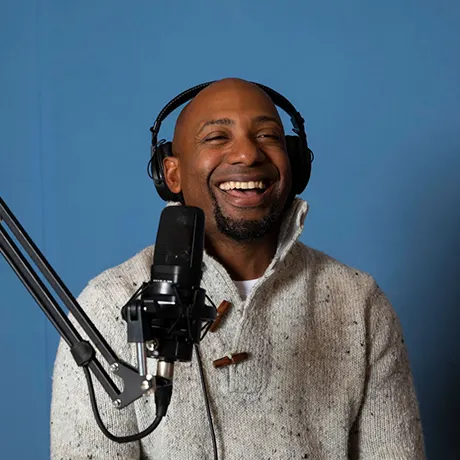
Julian Saavedra, MA
is a school administrator who has spent 15 years teaching in urban settings, focusing on social-emotional awareness, cultural and ethnic diversity, and experiential learning.
Latest episodes
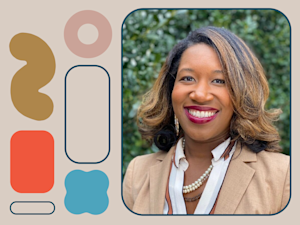
April 10, 2024
Myths and misinformation about ADHD and learning differences show up all the time on social media. Find out what’s fact and what’s fiction, and learn about the impact of these myths on kids of color.
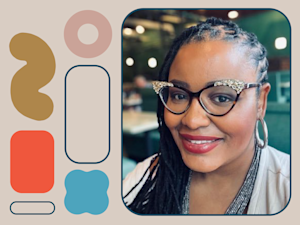
March 27, 2024
ADHD advocate René Brooks was diagnosed with ADHD twice as a child. But it wasn’t until she was diagnosed again as an adult that she finally got support. Listen to her story.
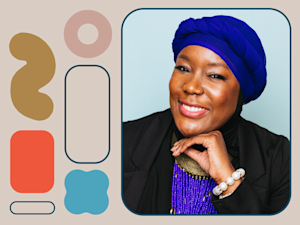
March 13, 2024
Learn about the steps to getting an IEP and starting your child’s special education program. Get tips from an expert.

February 14, 2024
Learn how four members of the Understood team are making an impact in the lives of people with learning and thinking differences.
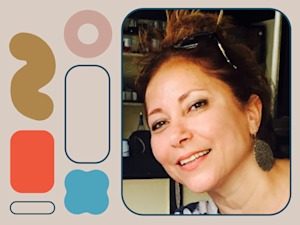
January 31, 2024
How can high-schoolers and their families prepare for life after high school? Get advice and tips from a college advisor.

January 17, 2024
Some kids don’t like to share information about their school day. Get tips on how to get them to open up and share. These tips and conversation starters can help your child to open up.
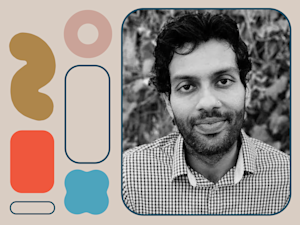
January 3, 2024
The school-to-prison pipeline has disrupted education for kids of color for a long time. Learn what the pipeline is and why it’s critical to end it.

December 6, 2023
Telling your relatives about your child’s challenges can be difficult. Get tips on how to make the talk easier to manage.

November 8, 2023
For some students of color, feeling mistreated by teachers is a common experience — and it shouldn’t be. Learn how to help kids self-advocate.
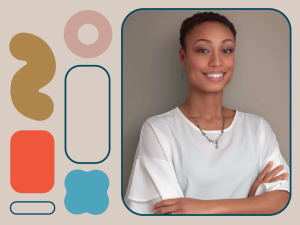
October 25, 2023
Dyslexia is a common learning difference that impacts many kids of color. Hear from an expert and learn ways to support kids in the classroom.
